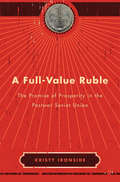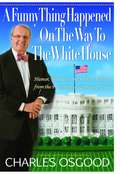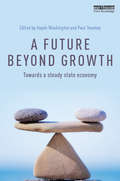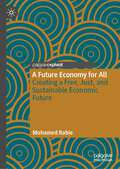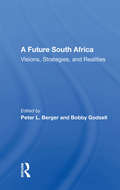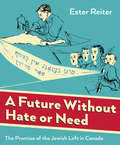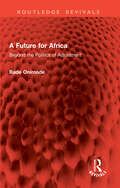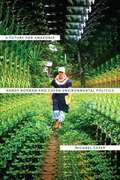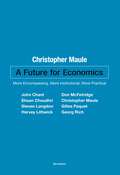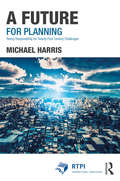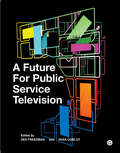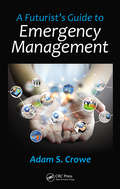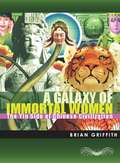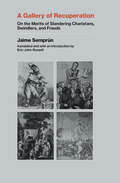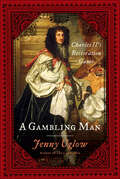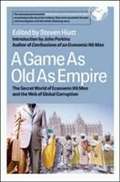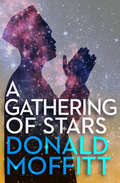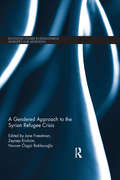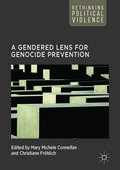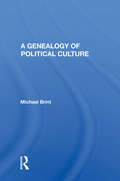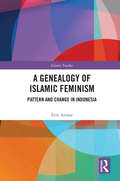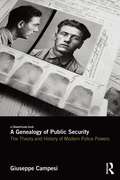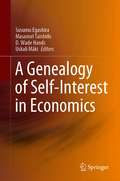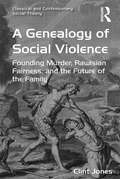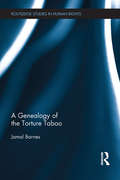- Table View
- List View
A Full-Value Ruble: The Promise of Prosperity in the Postwar Soviet Union
by Kristy IronsideA new history shows that, despite Marxism’s rejection of money, the ruble was critical to the Soviet Union’s promise of shared prosperity for its citizens. In spite of Karl Marx’s proclamation that money would become obsolete under Communism, the ruble remained a key feature of Soviet life. In fact, although Western economists typically concluded that money ultimately played a limited role in the Soviet Union, Kristy Ironside argues that money was both more important and more powerful than most histories have recognized. After the Second World War, money was resurrected as an essential tool of Soviet governance. Certainly, its importance was not lost on Soviet leaders, despite official Communist Party dogma. Money, Ironside demonstrates, mediated the relationship between the Soviet state and its citizens and was at the center of both the government’s and the people’s visions for the maturing Communist project. A strong ruble—one that held real value in workers’ hands and served as an effective labor incentive—was seen as essential to the economic growth that would rebuild society and realize Communism’s promised future of abundance. Ironside shows how Soviet citizens turned to the state to remedy the damage that the ravages of the Second World War had inflicted upon their household economies. From the late 1940s through the early 1960s, progress toward Communism was increasingly measured by the health of its citizens’ personal finances, such as greater purchasing power, higher wages, better pensions, and growing savings. However, the increasing importance of money in Soviet life did not necessarily correlate to improved living standards for Soviet citizens. The Soviet government’s achievements in “raising the people’s material welfare” continued to lag behind the West’s advances during a period of unprecedented affluence. These factors combined to undermine popular support for Soviet power and confidence in the Communist project.
A Funny Thing Happened on the Way to the White House: Humor, Blunders, and Other Oddities from the Presidential Campaign Trail
by Charles OsgoodCharles Osgood, one of America's favorite news personalities, offers a hilarious compendium of anecdotes from the last seventy years of presidential campaigns. With anecdotes from Harry Truman to JFK to George W. Bush, A Funny Thing Happened on the Way to the White House captures the wit and humor of the campaign trail. Culled from speeches, interviews, press conferences, as well as articles written by and about the candidates--no source is left untapped. From Bob Dole telling reporters after a loss in the primary that "I slept like a baby--every two hours I woke up and cried," and Barry Goldwater's comment that his talkative opponent Hubert Humphreys "has been clocked at 275 words a minute with gusts up to 340," to Adlai Stevenson declaring that "If I talk over the people's head, Ike must be talking under their feet," this is the go-to source for campaign humor. Just when America most needs a good laugh, A Funny Thing Happened on the Way to the White House makes the seemingly endless race to the presidency a lot more fun.
A Future Beyond Growth: Towards a steady state economy
by Haydn Washington Paul TwomeyThere is a fundamental denial at the centre of why we have an environmental crisis – a denial that ignores that endless physical growth on a finite planet is impossible. Nature provides the ecosystem services that support our civilisation, thus making humanity unavoidably dependent upon it. However, society continues to ignore and deny this dependence. A Future Beyond Growth explores the reason why the endless growth economy is fundamentally unsustainable and considers ways in which society can move beyond this to a steady state economy. The book brings together some of the deepest thinkers from around the world to consider how to advance beyond growth. The main themes consider the deep problems of the current system and key aspects of a steady state economy, such as population; throughput and consumerism; ethics and equity; and policy for change. The policy section and conclusion bring together these various themes and indicates how we can move past the growth economy to a truly sustainable future. This volume will be of great interest to students and scholars of economics, sustainability and environmental studies in general.
A Future Economy for All: Creating a Free, Just, and Sustainable Economic Future
by Mohamed RabieThis book journeys through human history, beginning with the tribal age and ending with an option for what's to come after the knowledge age. It examines the profound influence that culture, civilization, and materialism have on the distribution of wealth, knowledge, and power. It critically examines the shortcomings of current education and healthcare systems, shedding light on the difficulties nations face in effectively addressing the needs of citizens and population including refugees. The author challenges the existing societal frameworks, advocating for the adoption of novel political and economic systems firmly grounded in the principles of justice, freedom, and equity. At the core of this is a folk-political system that values productivity and empowers workers and workforces to innovate.Written for a discerning audience of economists, policymakers, scholars, and students, the book shifts the paradigm of the knowledge age away from issues with power and toward a future that values justice, freedom, and sustainability. Readers will gain invaluable insights into reshaping our societies, fostering inclusive economic growth, and ensuring a better world for all.
A Future South Africa: Visions, Strategies, And Realities
by Peter L. Berger Bobby GodsellThis book identifies the key 'actors' whose visions and strategies are crucial to the pattern which change will take in South Africa. These actors, their visions and 'strategic logic' were subjected to a critique by their researchers in the light of contemporary South African 'realities'.
A Future Without Hate or Need: The Promise of the Jewish Left in Canada
by Ester ReiterDriven from their homes in Russia, Poland, and Romania by pogroms and poverty, many Jews who came to Canada in the wave of immigration after the 1905 Russian revolution were committed radicals. A Future Without Hate or Need brings to life the rich and multi-layered lives of a dissident political community, their shared experiences and community-building cultural projects, as they attempted to weave together their ethnic particularity—their identity as Jews—with their internationalist class politics.
A Future for Africa: Beyond the Politics of Adjustment (Routledge Revivals)
by Bade OnimodeFirst published in 1992, A Future for Africa looks at the crises plaguing the Africa’s societies and economies and argues convincingly that the problems are not insuperable, but that, though their causes are largely external, the only long-term solutions rest in African hands.In this book, the author shows how the adjustment programmes imposed on many African countries by the World Bank and the IMF have compounded the disastrous impact of foreign debt, trade restrictions and falling export prices. Real development will only be achieved, he maintains, by returning control of Africa’s abundant resources to its people and by ensuring greater democracy and accountability in African political structures.
A Future for Amazonia: Randy Borman and Cofán Environmental Politics
by Michael CepekBlending ethnography with a fascinating personal story, A Future for Amazonia is an account of a political movement that arose in the early 1990s in response to decades of attacks on the lands and peoples of eastern Ecuador, one of the world's most culturally and biologically diverse places. <P><P>After generations of ruin at the hands of colonizing farmers, transnational oil companies, and Colombian armed factions, the indigenous Cofán people and their rain forest territory faced imminent jeopardy. In a surprising turn of events, the Cofán chose Randy Borman, a man of Euro-American descent, to lead their efforts to overcome the crisis that confronted them.
A Future for Economics: More Encompassing, More Institutional, More Practical
by Gilles Paquet Ehsan Choudhri Steven Langdon Harvey Lithwick John Chant Don McFetridge Georg RichEconomics is a discipline fundamentally concerned with effective coordination. In that way, its main concerns are very close to those of governance. Economics, like governance, has evolved considerably over the last half century. This book is a very modest attempt at gauging the relative importance of this tsunami and the way in which it might indicate what will be its future. A Future for Economics proposes the reflections on this general theme by eight senior members of the economics profession who have all taught at some time in the Department of Economics at Carleton University in Ottawa a department that has always been known for its intellectual temerity and for its interest in extending the scope of economics beyond its traditional boundaries. The Carleton sample of economists who share their views here have practiced in different sub-fields of economics, and have chosen to articulate their views and experiences in very different ways. But their collective experience reflects a broad exposure to the ways in which the discipline has evolved both in academic circles and in the various organizations and institutions where they have practiced their profession in Canada and abroad.
A Future for Planning: Taking Responsibility for Twenty-First Century Challenges (RTPI Library Series)
by Michael HarrisAs well as being spatial, planning is necessarily also about the future – and yet time has been relatively neglected in the academic, practice and policy literature on planning. Time, in particular the need for longer-term thinking, is critical to responding effectively to a range of pressing societal challenges from climate change to an ageing population, poor urban health to sustainable economic development. This makes the relative neglect of time not only a matter of theoretical importance but also increasing practical and political significance. A Future for Planning is an accessible, wide-ranging book that considers how planning practice and policy have been constrained by short-termism, as well as by a familiar lack of spatial thinking in policy, in response to major social, economic and environmental challenges. It suggests that failures in planning often represent failures to anticipate and shape the future which go well beyond planning systems and practices; rather our failure to plan for the longer-term relates to wider issues in policy-making and governance. This book traces the rise and fall of long-term planning over the past 80 years or so, but also sets out how planning can take responsibility for twenty-first century challenges. It provides examples of successes and failures of longer-term planning from around the world. In short, the book argues that we need to put time back into planning, and develop forms of planning which serve to promote the sustainability and wellbeing of future generations.
A Future for Public Service Television (Goldsmiths Press Ser.)
by Vana Goblot Edited by Des FreedmanA guide to the nature, purpose, and place of public service television within a multi-platform, multichannel ecology.Television is on the verge of both decline and rebirth. Vast technological change has brought about financial uncertainty as well as new creative possibilities for producers, distributors, and viewers. This volume from Goldsmiths Press examines not only the unexpected resilience of TV as cultural pastime and aesthetic practice but also the prospects for public service television in a digital, multichannel ecology. The proliferation of platforms from Amazon and Netflix to YouTube and the vlogosphere means intense competition for audiences traditionally dominated by legacy broadcasters. Public service broadcasters—whether the BBC, the German ARD, or the Canadian Broadcasting Corporation—are particularly vulnerable to this volatility. Born in the more stable political and cultural conditions of the twentieth century, they face a range of pressures on their revenue, their remits, and indeed their very futures. This book reflects on the issues raised in Lord Puttnam's 2016 Public Service TV Inquiry Report, with contributions from leading broadcasters, academics, and regulators. With resonance for students, professionals, and consumers with a stake in British media, it serves both as historical record and as a look at the future of television in an on-demand age.Contributors includeTess Alps, Patrick Barwise, James Bennett, Georgie Born, Natasha Cox, Gunn Enli, Des Freedman, Vana Goblot, David Hendy, Jennifer Holt, Amanda D. Lotz, Sarita Malik, Matthew Powers, Lord Puttnam, Trine Syvertsen, Jon Thoday, Mark Thompson
A Futurist's Guide to Emergency Management
by Adam S. CroweA Futurist's Guide to Emergency Management provides interdisciplinary analysis on how particular sets of conditions may occur in the future by evaluating global trends, possible scenarios, emerging conditions, and various other elements of risk management. Firmly based in science, the book leverages historical data, current best practices, and scie
A Galaxy of Immortal Women
by Brian GriffithForeWord Reviews Mother's Day Staff Pick: "Books Mom Will Love""A valuable historical reference guide." -Publishers Weekly"This is a very ambitious and timely book, a book that many historians, literary theorists and story tellers who care about China and its "Other Half of the Sky" want to write, but Brian Griffith did it first, with such scope, ease and fun." -WANG PING, author of The Last Communist Virgin and Aching for Beauty: Footbinding in China"This book is a most engaging and entertaining read, and the depth of its scholarship is astounding. Griffith vividly describes the counterculture of Chinese goddesses, shows that their fascinating stories are alive and active today, and points us toward a more inclusive and caring partnership future." -RIANE EISLER, author of The Real Wealth of Nations: Creating a Caring Economics and The Chalice and the Blade: Our History, Our FutureTouching on the whole story of China-from Neolithic villages to a globalized Shanghai-this book ties mythology, archaeology, history, religion, folklore, literature, and journalism into a millennia-spanning story about how Chinese women-and their goddess traditions-fostered a counterculture that flourishes and grows stronger every day.As Brian Griffith charts the stories of China's founding mothers, shamanesses, goddesses, and ordinary heroines, he also explores the largely untold story of women's contributions to cultural life in the world's biggest society and provides inspiration for all global citizens.Brian Griffith grew up in Texas, studied history at the University of Alberta, and now lives just outside of Toronto, Ontario. He is an independent historian who examines how cultural history influences our lives, and how collective experience offers insights for our future.
A Gallery of Recuperation: On the Merits of Slandering Charlatans, Swindlers, and Frauds
by Jaime SemprunThe first English translation of the French cult classic that lampoons France&’s most popular intellectuals of the post-1968 period and their ideas, which became forces of counterrevolution.Eric-John Russell&’s translation of Jaime Semprún&’s brutal takedown of France&’s best-known intellectuals of the post-1968 period, A Gallery of Recuperation, is one of the first full English versions of any of Semprún&’s books. Originally titled Précis de recuperation, the book is a scathing critique of ten major thinkers, including Michel Foucault, Gilles Deleuze, Jean-François Lyotard, and Cornelius Castoriadis. Semprún uses this catalog of careerism to reflect on the concept of recuperation—capitalism&’s uncanny ability to coopt anticapitalist critiques and subvert subversion. His central question: What happens to revolutionary ideas, including Marxism itself, in the hands of professional intellectuals?Semprún&’s idiosyncratic and playful style of polemics takes existentialism, humanism, structuralism, poststructuralism, postmodernism, aesthetics, and psychoanalysis to task, casting new light on the figures who have become dominant staples of modern Anglophone academia, and proving the necessity of critiquing intellectuals&’ roles within contemporary capitalism. A cult classic among the French radical left and scholars of the Situationist International and May 1968, A Gallery of Recuperation never made the impact it should have. Russell&’s translation marks a major step in recognizing Semprún&’s work beyond its French context.
A Gambling Man: Charles II's Restoration Game
by Jenny UglowThe Restoration was a decade of experimentation: from the founding of the Royal Society for investigating the sciences to the startling role of credit and risk; from the shocking licentiousness of the court to failed attempts at religious tolerance. Negotiating all these, Charles II, the "slippery sovereign," laid odds and took chances, dissembling and manipulating his followers. The theaters may have been restored, but the king himself was the supreme actor. Yet while his grandeur, his court, and his colorful sex life were on display, his true intentions lay hidden.Charles II was thirty when he crossed the English Channel in fine May weather in 1660. His Restoration was greeted with maypoles and bonfires, as spring after the long years of Cromwell's rule. But there was no way to turn back, no way he could "restore" the old dispensation. Certainty had vanished. The divinity of kingship had ended with his father's beheading. "Honor" was now a word tossed around in duels. "Providence" could no longer be trusted. As the country was rocked by plague, fire, and war, people searched for new ideas by which to live. And exactly ten years after he arrived, Charles would again stand on the shore at Dover, this time placing the greatest bet of his life in a secret deal with his cousin, Louis XIV of France.Jenny Uglow's previous biographies have won the James Tait Black Memorial Prize and International PEN's Hessell-Tiltman Prize for History. A Gambling Man is Uglow at her best: both a vivid portrait of Charles II that explores his elusive nature and a spirited evocation of a vibrant, violent, pulsing world on the brink of modernity.
A Game as Old as Empire: The Secret World of Economic Hit Men and the Web of Global Corruption
by Steven HiattThis may well be the most pivotal and exciting time in the history of a nation that is built on pivotal and exciting events. How you and I choose to react to this global empire in the coming years is likely to determine the future of our planet. Will we continue along a road marked by violence, exploitation of others, and ultimately the likelihood of our self-destruction as a species? Or will we create a world our children will be proud to inherit? The choice is ours--yours and mine.
A Gathering of Stars (Mechanical Sky #2)
by Donald MoffittIn this sci-fi fantasy, a scientist is ordered to master the challenges of space travel in order to satisfy the political schemes of an ambitious leader. Though the Great Awakening spread the teachings of Islam throughout the universe more than a thousand years earlier, no ruler has yet attempted to rule the Muslim Empire. Until now. The sultan Alpha Centauri is ready to claim the Caliph title, but he cannot do so without making the necessary pilgrimage to the holy city of Mecca. With human knowledge of interplanetary travel still limited, the sultan engages the help of Abdul Hamid-Jones. Abdul may be a fugitive from the law, but he&’s also one of the few men smart enough to rise to the challenge. But soon after being immersed into the world of astrophysics and court politics, Abdul understands that his only option is to succeed with the sutan&’s plan. For the fate of the entire solar system depends on it.
A Gendered Approach to the Syrian Refugee Crisis (Routledge Studies in Development, Mobilities and Migration)
by Jane Freedman Zeynep Kivilcim Nurcan Özgür BaklacıoğluThe refugee crisis that began in 2015 has seen thousands of refugees attempting to reach Europe, principally from Syria. The dangers and difficulties of this journey have been highlighted in the media, as have the political disagreements within Europe over the way to deal with the problem. However, despite the increasing number of women making this journey, there has been little or no analysis of women’s experiences or of the particular difficulties and dangers they may face. A Gendered Approach to the Syrian Refugee Crisis examines women’s experience at all stages of forced migration, from the conflict in Syria, to refugee camps in Lebanon or Turkey, on the journey to the European Union and on arrival in an EU member state. The book deals with women’s experiences, the changing nature of gender relations during forced migration, gendered representations of refugees, and the ways in which EU policies may impact differently on men and women. The book provides a nuanced and complex assessment of the refugee crisis, and shows the importance of analysing differences within the refugee population. Students and scholars of development studies, gender studies, security studies, politics and middle eastern studies will find this book an important guide to the evolving crisis.
A Gendered Lens for Genocide Prevention (Rethinking Political Violence)
by Mary Michele Connellan Christiane FröhlichThis edited collection develops a gendered lens for genocide prevention by uncovering socially constructed gender roles which are crucial for the onset, form and prevention of genocide and mass atrocities. This volume draws on contemporary feminist theory, concepts of masculinity, critical discussions of international law, and in-depth case studies to provide a better understanding of the function of gender at different stages of genocide and mass atrocity processes as well as a basis for more comprehensive strategies for genocide prevention.
A Genealogy Of Political Culture
by Michael E BrintIn this lively and witty history of the study of political culture, Michael Brint examines the differences between the French sociological tradition from Montesquieu to Tocqueville; the German tradition of cultural philosophy from Kant to Weber; and the American scientific or behavioral tradition from Almond and Verba forward. Enlisting his own tra
A Genealogy of Islamic Feminism: Pattern and Change in Indonesia (Routledge Islamic Studies Series)
by Etin AnwarA Genealogy of Islamic Feminism offers a new insight on the changing relationship between Islam and feminism from the colonial era in the 1900s to the early 1990s in Indonesia. The book juxtaposes both colonial and postcolonial sites to show the changes and the patterns of the encounters between Islam and feminism within the global and local nexus. Global forces include Dutch colonialism, developmentalism, transnational feminism, and the United Nations’ institutional bodies and their conferences. Local factors are comprised of women’s movements, adat (customs), nationalism, the politics underlying the imposition of Pancasila ideology and maternal virtues, and variations of Islamic revivalism. Using a genealogical approach, the book examines the multifaceted encounters between Islam and feminism and attempts to rediscover egalitarianism in the Islamic tradition—a concept which has been subjugated by hierarchical gender systems. The book also systematizes Muslim women’s encounters with Islam and feminism into five phases: emancipation, association, development, integration, and proliferation eras. Each era discusses the confluence of global and local factors which shape the changing relationship between Islam and feminism and the way in which the discursive narrative of equality is debated and contextualized, progressing from biological determinism (kodrat) to the ethico-spiritual argument. Islamic feminism contributes to the rediscovery of Islam as the source of progress, the centering of women’s agency through spiritual equality, and the reworking of the private and public spheres. This book will appeal to anyone with interest in international women’s movements, interdisciplinary studies, cultural studies, women’s studies, post-colonial studies, Islamic studies, and Asian studies.
A Genealogy of Public Security: The Theory and History of Modern Police Powers
by Giuseppe CampesiThere are many histories of the police as a law-enforcement institution, but no genealogy of the police as a form of power. This book provides a genealogy of modern police by tracing the evolution of "police science" and of police institutions in Europe, from the ancien régime to the early 19th century. Drawing on the theoretical path outlined by Michel Foucault at the crossroads between historical sociology, critical legal theory and critical criminology, it shows how the development of police power was an integral part of the birth of the modern state’s governmental rationalities and how police institutions were conceived as political technologies for the government and social disciplining of populations. Understanding the modern police not as an institution at the service of the judiciary and the law, but as a complex political technology for governing the economic and social processes typical of modern capitalist societies, this book shows how the police have played an active role in actually shaping order, rather than merely preserving it.
A Genealogy of Self-Interest in Economics
by Uskali Mäki Susumu Egashira D. Wade Hands Masanori TaishidoThis is the first book to describe the entire developmental history of the human aspects of economics. The issue of “self-interest” is discussed throughout, from pre-Adam Smith to contemporary neuroeconomics, representing a unique contribution to economics. Though the notion of self-interest has been interpreted in several ways by various schools of economics and economists since Smith first placed it at the heart of the field, this is the first book to focus on this important but overlooked topic. Traditionally, economic theory has presupposed that the core of human behavior is self-interest. Nevertheless, some economists, e.g. recent behavioral economists, have cast doubt on this “self-interested” explanation. Further, though many economists have agreed on the central role of self-interest in economic behavior, each economist’s positioning of self-interest in economic theory differs to some degree. This book helps to elucidate the position of self-interest in economic theory. Given its focus, it is a must-read companion, not only on the history of economic thought but also on economic theory. Furthermore, as today’s capitalism is increasingly causing people to wonder just where self-interest lies, it also appeals to general readers.
A Genealogy of Social Violence: Founding Murder, Rawlsian Fairness, and the Future of the Family (Classical and Contemporary Social Theory)
by Clint JonesExamining the mimetic theory of René Girard, this book investigates the development of society as a result of an original crime (a murder) that shaped the way the earliest humans organized the social structures we live with today - an analysis that reveals the dangerous structure of the most basic social relationships. With attention to family relationships, A Genealogy of Social Violence sheds light on the processes by which the traditional nuclear family, through the mimetic behaviour of children, embeds violence into human desires and hence society as whole. Challenging the thought of Girard and of Rawls in order to offer a new understanding of justice, this book suggests that in order to achieve a more peaceful society, what is required is not the self-defeating narrative of equality, developed in order to manage the violence engendered by our social institutions, but a reconceptualisation of the nuclear family structure. A striking critique of modern society, which draws on religion, mythology, literature, history, philosophy and political theory, A Genealogy of Social Violence will be of interest to social and political theorists, as well as philosophers working in the area of contemporary social and European thought.
A Genealogy of the Torture Taboo (Routledge Studies in Human Rights)
by Jamal BarnesThis book examines the historical genealogy of the torture taboo. The dissonance between the absolute prohibition against torture and its widespread violation raises important questions about the torture taboo in world politics. Does the torture taboo matter? Or are political realists correct in arguing that power politics rules? Barnes argues that despite the torture taboo’s violation, it still matters, and paradoxically, its strength can be seen by studying its violation. States hide, deny, re-define and outsource their torture, as well as torture without leaving marks to avoid being stigmatised as a norm violating state. Tracing a genealogy of the torture taboo from the eighteenth to the twenty-first century Barnes shows how the taboo has developed over time, and how violations have played an important role in that development. Through six historical and contemporary case studies, it is argued that the taboo’s humanitarian pressures do not cease when states violate the norm, but continue to shape actors in unexpected ways. Building upon the constructivist norm literature that has shown how norms shape state actions and interests, the book also widens our understanding of the complex role norm violations play in international society. Making a contribution to existing public debates on the use of torture in counter-terrorism policy, it will be of great use to scholars, postgraduates and practitioners in the fields of human rights, international relations theory (in particular constructivism), security studies and international law.
